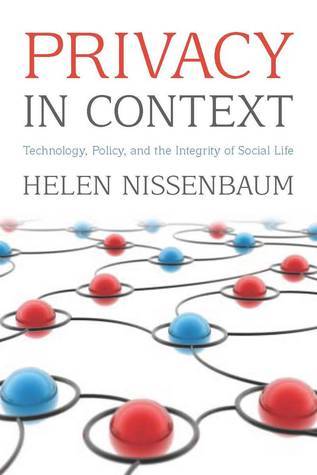What do you think?
Rate this book


304 pages, Paperback
First published January 1, 2009
1. Los roles de los actores que participan significativamente en ese contexto;La propuesta de Nissenbaum es útil, pragmática y fértil -considero que es un excelente punto de partida y obligada referencia para seguir ahondando en el tema.
2. Las actividades representativas o "canónicas" en que se desarrollan los roles;
3. Las normas que orientan, prescriben y proscriben acciones y prácticas acceptables. A su vez estas normas se caracterizan por cuatro parámetros: los contextos en que aplican, los actores (emisores, receptores y sujetos de información), los atributos o tipos de información y los principios de transmisión, valga decir las restricciones al flujo de información de una parte a otra en un contexto.
4. Los valores en que se sustentan las metas, propósitos, fines u objetivos ese contexto.